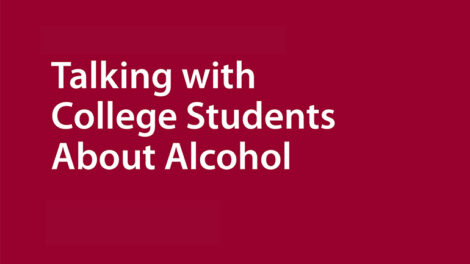Dear Lafayette College Parent,
We are pleased to be writing to you in your role as Lafayette parents. We look forward to meeting many of you next month during new student orientation. In the meantime, we wanted to write to you with some important information and a request for your help. During the next four years, your child will grow and change in large part based on personal interactions with peers and the environment in which he or she is living. We know that the culture at Lafayette College will have a big impact on your child’s development. We take every aspect of the Lafayette College education seriously. To that end, we have implemented a number of educational programs to help our students – your children – make the safest, healthiest decisions possible outside of the classroom. Two of them will occur before they arrive on College Hill next month.
Lafayette partners with EverFi, a company whose mission is to help students thoughtfully consider critical choices about alcohol use and preventing sexual misconduct and relationship violence, to help us begin educating and empowering students before they arrive on campus. To that end, incoming first-year and transfer students are required to complete two on-line courses before move-in day in late August: AlcoholEdu and Sexual Assault Prevention for Undergraduates. We communicated directly with students on Monday (7/29) regarding the information and instructions they need to complete these courses.
We believe enlisting your help by asking you to have these intentional conversations with your son or daughter is an integral part of our comprehensive strategy to reduce harmful consequences related to binge drinking and the rapid consumption of alcohol. And, in fact, research shows us that these conversations between you and your child are incredibly productive. Researchers have also indicated that parents tend to underestimate how frequently their own college-age child drinks (Bylund, Imes, & Baxter, 2005). Further, separate studies (Abar, Abar, & Turrisi, 2009) have shown how important it is for parents to have candid conversations with their son or daughter about alcohol or other drug use and that these conversations can actually reduce or curb a student’s use of alcohol well into the first semester of college. In short, messages from you on this topic matter a great deal.
Lafayette is pleased to be able to provide you with a guide to aid you in having these conversations. The guide entitled A Parent Handbook for Talking with College Students About Alcohol is just one of many strategies Lafayette utilizes to reduce the negative implications of alcohol abuse for individuals and for our entire community. The time to have these conversations is now, even if you have had them before. I’ll underscore the fact that research has shown that these conversations actually lead to positive behavioral change and decision-making. We are, of course, busy working on a wide variety of other programs and projects in these last days of summer to ensure that your son or daughter has the best possible Lafayette experience.
However, for our efforts related to alcohol and other drugs and sexual violence prevention education, we really need your help. If you think that students will not listen to you or that they aren’t likely to engage in risky behaviors, please take a few minutes to read the Guide or web resource mentioned above that debunks those myths and offers specific talking points to initiate these conversations.
We look forward to your arrival on campus later this month. If you have any questions in the meantime, we would be happy to answer them. Feel free to email us now or during the upcoming year at deanofstudents@lafayette.edu.
Sincerely,
Jennifer Dize
Assistant Dean of Students
Amanda Hanincik
Director of Educational Equity
